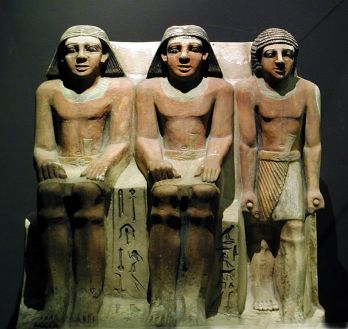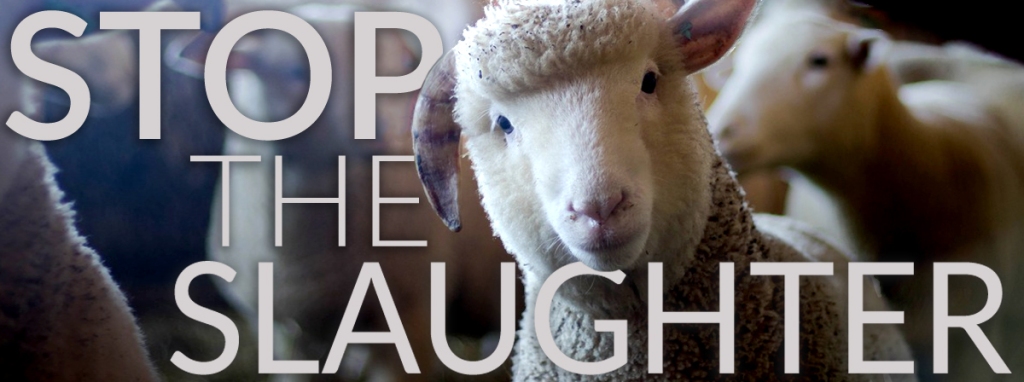Ancient Egyptians Were Actually Mostly Vegetarian, New Research Says

Wikimedia Commons
Source Care2
By Jessica Ramos
Primarily feasting on meats, eggs and vegetables, many people on “cavemen diets,” including the Paleo Diet, claim that they are eating like the ancients. While the image of a caveman hunter eating the flesh off of an animal’s bone is embedded in many of our minds, it isn’t quite accurate. The truth is that our ancestors were mostly vegetarian, feasting on fruits, veggies and grains.
New research from Egypt confirms the latter, showing that ancient societies that were mostly vegetarian existed and thrived — although their view of what it meant to “go veg” must’ve been completely different from our own modern one.
Eat More Like an Ancient Egyptian
As reported in Inside Science, the carbon atoms of ancient Egyptian mummies reveal that ancient Egyptians loved their fruits, veggies and (really loved) grains.
French scientists surveyed 45 ancient Egyptian mummies. Instead of focusing on the common hair-collagen-protein trifecta, these scientists examined the mummies’ teeth and bones. The scientists also purposefully studied mummies from different points in history. That way, they could determine the diets from an extended span of time versus an isolated period.
Publishing their findings in the Journal of Archaeological Science, the French scientists determined that the ancient Egyptians were mainly vegetarians. Like other ancient societies, their diets were largely made up of wheat and barley.
And then their research got really interesting.
Still Veg Despite All the Fish in the Nile
The ancient Egyptians walked their vegetarian talk. The research showed that the ancients actually kept going veg up. While the researchers hypothesized that there would be changes to the diet over time, they were wrong. They even kept up a vegetarian diet when the region “became increasingly arid between 3500 B.C. and 600 A.D.” They were able to maintain their vegetarian thanks to their advanced irrigation systems.
We know that the ancient Egyptians revered and used the Nile, and that’s where things get fishy. Apart from common-sense, the ancients told us that they knew how to fish from their fishing hieroglyphs, texts, paintings, sculptures and reliefs. Yet, the assumption that they were hooked on fish might be inaccurate; overall, the mummy isotopes don’t reveal a significant amount of fish consumption. On top of that, we also know that some fish species weren’t eaten due to religious motives.
The Ancient Egyptians Weren‘t the Only Vegetarians
Believe it or not, while vegetarianism feels so politicized today, it wasn’t always this way. Each society had their own reasons for going and staying (mostly) vegetarian. However, even some of the ancients had to tackle the ethics of eating animals. Vegetarianism was also woven into many of the world’s religions; Christianity, Judaism and Islam are included — Jesus himself could’ve been mostly vegetarian.
Let’s take a quick go-around the ancient world where vegetarian diets were highly adopted and practiced:
Paleolithic hunters (ironically, enough) were “almost exclusively” vegetarian; although, they would rely on meat more in the neolithic period.
No fat shaming for ancient gladiators; they needed to be fat to survive. Those big and intimidating gladiators were also mostly vegetarian who loved their carbs.
In China, a mostly vegetarian diet was the norm in northern and southern dynasties. The Qing Dynasty actually had three types of vegetarians: “assorted vegetarian diet, meat-modelled vegetarian diet and purely vegetarian diet.”
The ancient civilizations of the Americas also relied on a mostly vegetarian diet. While animal flesh complemented their diets, it wasn’t the center of their diets. The Maya had maize (corn was called “ishin,” and it literally means “center”), the (pre-) Inca civilizations had the potato. A variety of vegetables and delicious fruits rounded out the other staples.
The ancients gave us invaluable lessons in how to coexist with our environment; they weren’t being trendy by going green or veg or being sustainable; they just were.
One of the most valuable ancient gems of wisdom is: Let food be thy medicine and medicine be thy food. It seems like many ancient societies adopted a mostly vegetarian diet, so there must be something to it. While we can debate whether going vegetarian can heal the body forever, even a mostly vegetarian diet can definitely help heal our planet and the animals that we share it with today.
Order a FREE vegan kit: http://www.peta.org/living/vegetarian-living/free-vegetarian-starter-kit.aspx
Take PETA’s Cruelty-Free Shopping Guide along with you next time you head to the store! The handy guide will help you find humane products at a glance. Order a FREE copy HERE
Want to do more than go vegan? Help others to do so! Click on the below for nominal, or no, fees to vegan literature that you can use to convince others that veganism is the only compassionate route to being an animal friend.
PETA: http://www.petacatalog.com/catalog/Literature-39-1.html
Action for Animals has a very low price : http://store.afa-online.org/home.php?cat=284
Have questions? Click HERE
To find greater wisdom
Than what is around today
Sometimes we have to
Look
“forward” to bygone
Days
Karen Lyons Kalmenson













































VERY interesting post. Heila
LikeLiked by 2 people
I think so, too, thanks, Heila.
LikeLiked by 1 person
To find greater wisdom
Than what is around today
Sometimes we have to
Look
“forward” to bygone
Days
LikeLiked by 2 people
It’s absolutely perfect, I love it, thanks, hon!
LikeLiked by 1 person
you are so very welcome and thank you sweet soul!
LikeLike
WOW, amazing! They were more civil and progressed than many modern humans . Thank you very much x
LikeLiked by 2 people
I totally agree! Thanks, hon. (Is that a new picture? I love it!)
LikeLiked by 1 person
I truly love your blog.. Very nice colors & theme.
Did you create this website yourself? Please
reply back as I’m hoping to create my own website and would love to know where
you got this from or just what the theme is named.
Kudos!
LikeLike
Pretty component of content. I simply stumbled upon your weblog and in accession capital
to claim that I get in fact loved account your blog posts.
Any way I will be subscribing to your feeds or even I fulfillment you access persistently
fast.
LikeLike